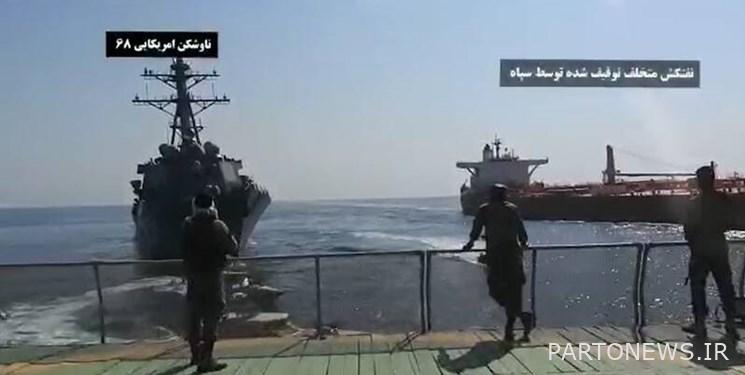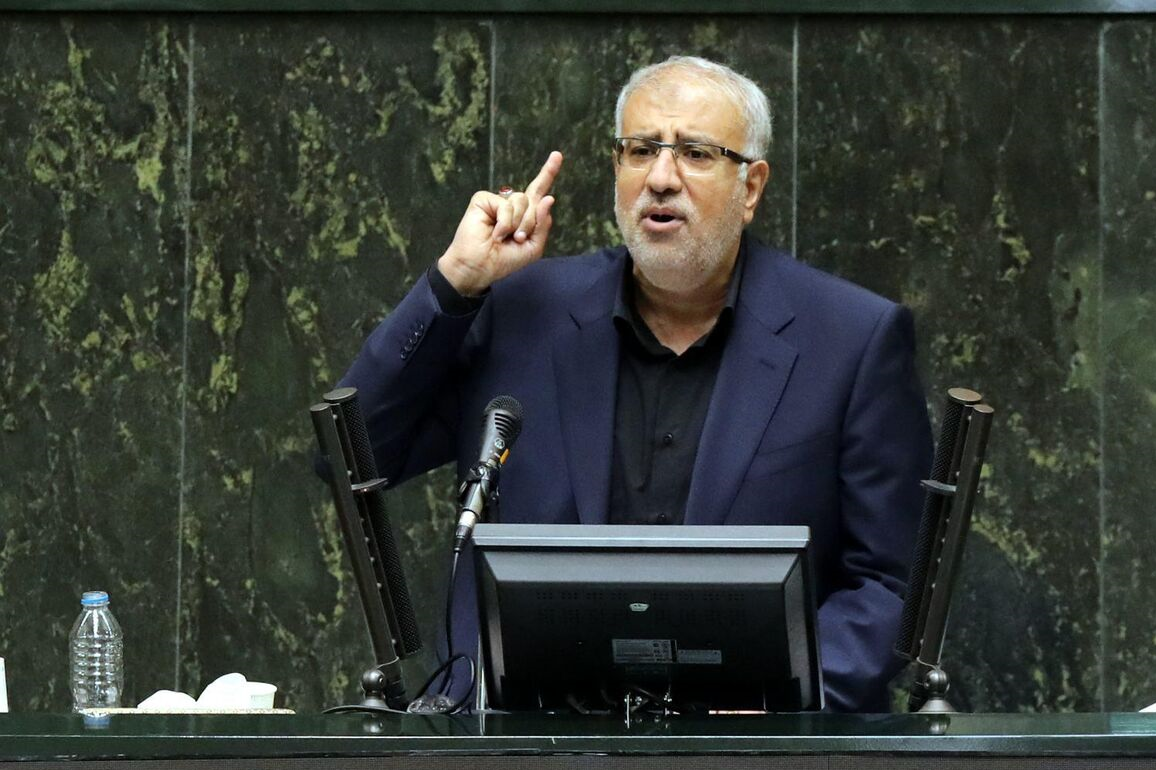US failed scenario to compensate for sanctions loopholes / Growth of Iranian oil exports by adopting new approaches

According to the economic correspondent of Fars News Agency, the news of the Americans’ defeat in the piracy of Iranian oil in the Oman Sea was published in the media yesterday. In doing so, the United States intended to seize an oil tanker carrying Iranian oil exports in the waters of the Oman Sea and divert its oil cargo to another tanker to an unknown destination.
But the IRGC navy captured Heli Burn on the deck of the tanker, captured it, and steered the tanker into Iranian territorial waters. Attempts by US terrorist forces to return the tanker were unsuccessful, and the Americans failed to steal Iranian oil.
Since yesterday, all the analyzes presented on the case of “American piracy” have been about the ability of the Revolutionary Guards navy to successfully turn the page in Iran’s favor in the face of the American side. But this story can be analyzed from other aspects as well.
* US preference for sanctions over military oil in exchange for oil with Iran
Overall, a review of the US approach to Iran over the past 10 years shows that the confrontation between the two countries has shifted from “military and hard” to “economic and semi-hard”, and that weakening Iran’s economy with available US tools, including sanctions. With its media attachment, to the originalMost Its program against Iran has changed.
In other words, the US preference in dealing with oil with Iran has been to pursue restrictions on Iranian oil exports through the imposition of oil sanctions rather than through confiscation and confiscation. “There is a clear reason for this preference for sanctions over military action:”So far, US sanctions instruments to curb Iran’s oil exports have been more effective and less costly than military action and possible conflicts.“.
As a result, as long as the United States achieves its goals in the face of Iran in the midst of a “semi-tough economic war,” there is no reason to change the playing field and test other options that the United States is less likely to have. On the other hand, it should be noted that the oil confrontation between Iran and the United States is an economic war that requires its own tools and military tools in economic warfare are practically inefficient or have low efficiency.
For example, Iran’s threat to close the Strait of Hormuz in the event of US oil sanctions has been a military response to an economic confrontation, which, as has been seen, has little effect in neutralizing sanctions in an economic war between the two countries.
* US seeks to fill sanctions loopholes with tough operations
With this introduction, a key question now arises: Given the failed US move to seize Iranian oil shipments, why has the US approach to economic confrontation with Iran, such as economic warfare and sanctions, changed to military action? Isn’t the use of sanctions weapons more effective in restricting Iran’s oil exports?
It seems that the only purpose of the United States in abruptly changing its approach and applying the model of a tough war against oil with Iran is to cover up the weakened structure of sanctions against Iran’s oil exports.
Apparently, with the coming to power of the 13th government and the adoption of a new approach in foreign policy, routes have been opened for the sale of Iranian oil, which has reduced the effectiveness of US sanctions weapons in restricting the sale of Iranian oil. It is against Iran.
As a result, the weakening effect of sanctions has led the United States to at least test the route of confiscation and theft in the selection of options in exchange for oil with Iran, so that it may be effective. Of course, as mentioned, due to the difference between the type of tools used by the United States (military and hard) and the type of war between the two countries (economic and semi-hard), this new US approach will not work.

* The Minister of Oil acknowledges the failure of the embargo on sanctions and the increase in Iran’s oil exports
Yesterday, Minister of Oil Javad Oji, in a message praising the IRGC forces for rescuing the Iranian tanker from American pirates, explained why the US was desperate to seize Iranian oil: “The enemies of the Iranian people saw with their own eyes when the servants The people of Iran in the thirteenth government are determined to break the difficult siege of sanctions with steely will and without hesitation, and The result of this will was seen by the sons of the nation in increasing the export of Iranian oil and condensate and products, and they saw that they could not stop this national determination in other ways, in the last resort to one of their old solutions, which has a long history. they went».
Also, the Minister of Oil, Javad Oji, in a televised interview on Tuesday, November 2, after attending the meeting of the Economic Commission of the Majles, referred to the increase in Iran’s oil exports in the 13th government and said: Good work has been done in this field by using internal and external power and capacity. “Oil purification, and especially oil purification, good measures have been taken in the government to invest in various projects, and good plans have been identified that will be key soon.”
* The upward trend of Iran’s oil exports since the beginning of 2021
Also, according to OPEC statistics (Figure 1), Iran’s oil production has increased by 500,000 barrels per day since the beginning of 2021. Thus, OPEC estimates Iran’s oil export figure with a deduction of fixed refining capacity in the country between 700 to 800 thousand barrels per day.
Figure 1- The amount of Iranian oil production in 2021 based on OPEC statistics
It is likely that OPEC’s alleged figure for Iran’s oil exports is lower than its true figure because, due to sanctions, some information related to Iran’s oil production and sales has not been leaked at all and is not identifiable. In this regard, according to rumors, Iran’s export of oil and gas condensate has reached more than one million barrels per day.
* US failed scenario to make up for sanctions loopholes
Tanker Tracking Company, Tanker ترکرز, Reported that In the first half of 2021, Iran shipped an average of one million barrels of oil per day to China, up from 30 percent more than China bought from Iran in the pre-sanctions era.
In another report, the oil tanker tracking company estimated Iran’s oil sales at 500,000 barrels last year (2020), but went on to say that Iran currently exports one million barrels a day to China, and in some months of this year, even this The figure has also peaked at 1.5 million barrels.
Overall, according to the Minister of Oil and various statistics from credible sources, Iran’s oil exports have increased significantly, which proves that the measures taken by the 13th government’s Ministry of Oil have been effective in reducing the effectiveness of US sanctions.
This is why the United States is seeking to spice up military action in imposing oil sanctions on Iran, which, of course, will not only have no effect on the sale of Iranian oil, but will also lead to another military defeat for the United States.
end of Message/
.

